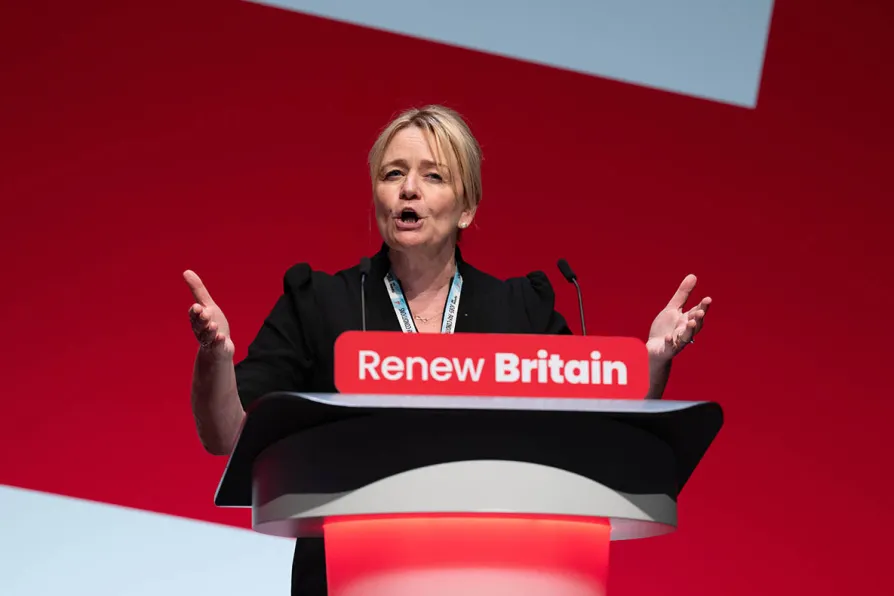Call comes as unemployment rate hits highest level since early 2021, the height of the pandemic

 Unite general secretary Sharon Graham delivers a speech during the Labour Party Conference at the ACC Liverpool, September 29, 2025
Unite general secretary Sharon Graham delivers a speech during the Labour Party Conference at the ACC Liverpool, September 29, 2025
UNIONS demanded the government deliver a co-ordinated industrial strategy today, after unemployment climbed to its highest level in more than four years.
New figures released by the Office for National Statistics (ONS) showed that unemployment hit 4.8 per cent in the three months to August, rising by 297,000 over the year.
It marks the highest jobless rate since January to March 2021, at the height of the pandemic.
Commenting on the figures, Unite general secretary Sharon Graham said: “The UK economy needs a co-ordinated industrial strategy backed by serious investment.
“To do anything else risks workers in Britain being thrown on the scrap heap and rising unemployment.
“Other economies like Germany are investing heavily in their industries and the UK is lagging way behind.”
Liz McKeown, the ONS’s director of economic statistics, said that the increase in unemployment was “driven mostly by younger people.”
Analysis by the Work Foundation reported that 12 per cent of young people aged 18-24 are unemployed, with 112,000 out of work for over 12 months.
The think tank’s director, Ben Harrison, said: “Ministers must learn from previous attempts to tackle long-term youth unemployment and ensure they support – not sanction – young people into real, paid opportunities.”
Wage growth had also slowed over the summer to 4.7 per cent.
Resolution Foundation’s Charlie McCurdy said: “The UK’s longstanding weakness in the jobs market has finally caught up with pay packets.
“The pace of wage growth finally fell below the rate of inflation over the summer. As a result, real weekly wages have grown by just £1.50 in total since last September — barely enough to cover the cost of a Greggs sausage roll.”
“The deteriorating labour market, coupled with persistently high inflation, means that cost of living pressures are likely to build over the autumn.”
ONS said, however, that declines in job vacancies and the number of payrolled employees are “levelling off.”
The latest data showed that workers on payrolls rose by 10,000 in August, while vacancies shrank by 9,000 in the quarter to September.
TUC general secretary Paul Nowak said these were “chinks of light,” but noted that there were “no quick or easy fixes to wider labour market challenges, which have been a long time in the making.
“The government is on the right track with significant public investment, stronger workers’ rights and improving the support people need to get into work,” he said.
“The Chancellor must build on this at the Budget, sustaining investment in our infrastructure and continuing to repair our public services.”
Last month, the TUC voted on a motion in favour of “wages not weapons” put forward by the UCU, opposing the government’s increases in defence spending and supporting investment in public services.
UCU general secretary Jo Grady said: “Today’s ONS labour market figures confirm what too many UCU members already know: the job market is cooling, wage growth is under pressure, and too many people are being forced into insecure, undervalued work.
“When public investment falters, so too does job security, pay, and working conditions in our sectors.”










